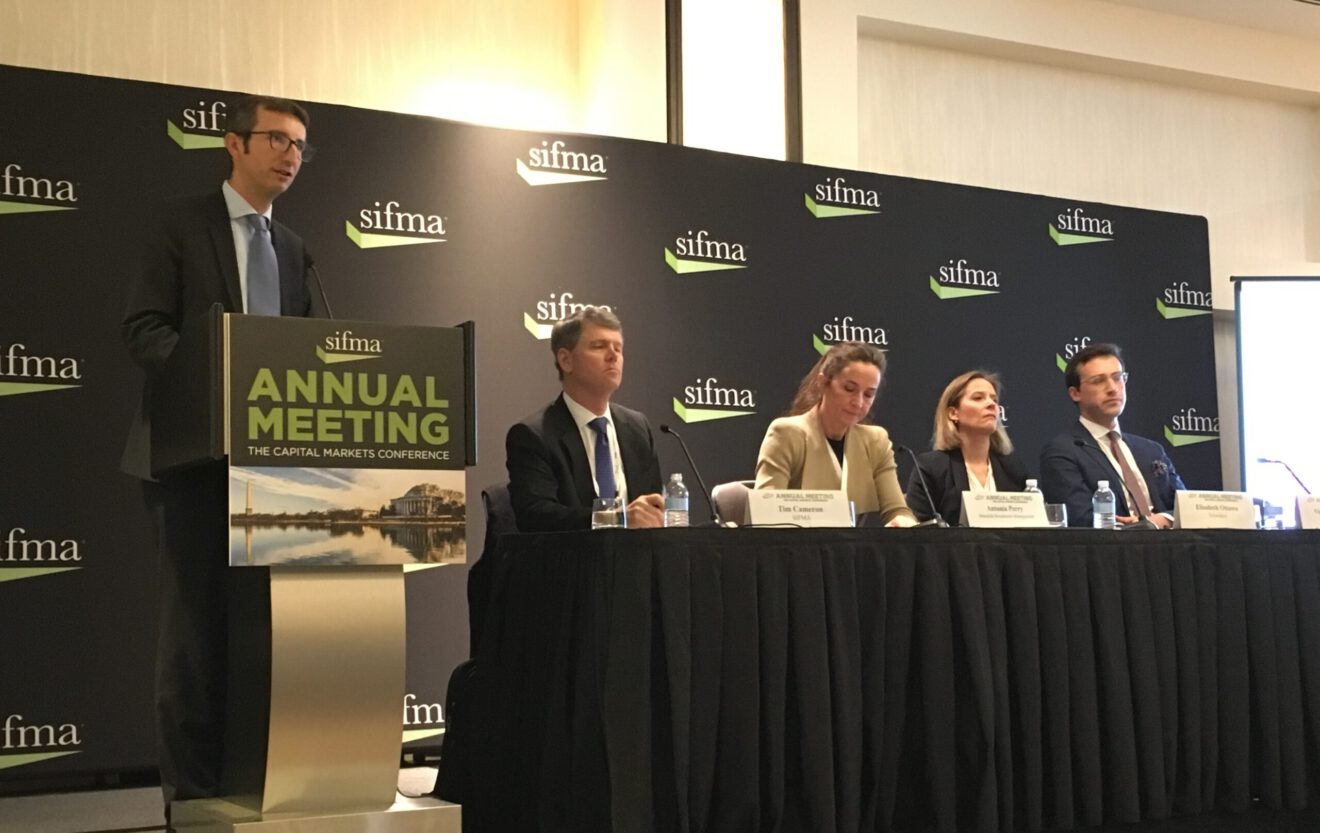Establishing objective criteria for what constitutes a sustainable investment should involve flexibility and steer clear of overly burdensome rules, said panelists on Tuesday at the SIFMA Annual Meeting in Washington, D.C.
Martin Spolc, head of sustainable finance and fintech at the European Commission, said an effort to develop an EU taxonomy for sustainable investments emerged from the financial sector, which cited a concern about a lack of clarity on the issue.
The EC doesn’t “believe that we would be successful with this project if we throw tons of new regulations on the market and believe that the market would blossom,” he said.
Antonia Perry, vice president of global distribution at Manulife Investment Management, described sustainable investing as a “nascent industry” and warned that “we could strangle it by regulation.”
She said a globalization of taxonomies, standards and disclosures is important for sustainable investing “because without that you’re going to find arbitrage.” Consistency and transparency in disclosure is particularly critical, she said.
Elisabeth Ottawa, deputy head of public policy at Schroders, said sustainable investments are “a great way of showing that we create value that goes beyond the mere financial numbers.”
“We see a huge potential by sustainable investing not only to activate new funds but to activate a new group of investors,” she said.
Victor van Hoorn, head of EU financial services at Hume Brophy, said taxonomy at this point is just a “screening tool” for identifying investments that are sustainable, but not those that would also generate strong returns for a portfolio.
Setting the right policies to “expand that investment universe” is vital, and that could involve linking taxonomies to subsidies, tax breaks and carbon pricing, van Hoorn said. He also expects the European fiduciary duty to “shift slightly” in the next decade to include “a duty to society at large,” he said.
Ottawa said that what counts as a green investment today might not be considered green in the future. For example, nuclear energy has no large carbon emissions in the short term, but is unlikely to be a viable solution in the long term, she said.
One area needing further consideration, van Hoorn said, is whether regulators are in a position to verify investments as sustainable. He said auditing firms and credit rating firms might be needed to help address that gap.
